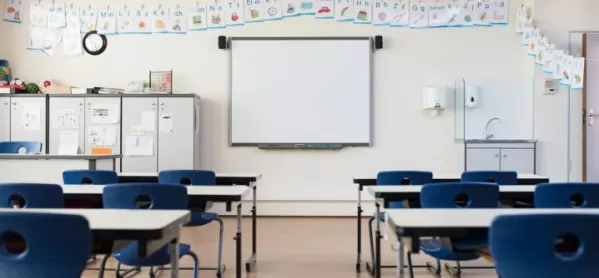Almost three-quarters of school leaders say budgetary restrictions will have more of an effect on pupils’ education this year than government policy, national curriculum and learning environment.
That’s according to the this year’s Promethean State of Technology in Education Report, which, for the third year running, also found that an average of 54 per cent of school leaders think budgets will make it difficult for their school to realise its strategic objective.
As Tes today exclusively reveals the depth of the school funding crisis, the report highlights a “dramatic increase” in spending since last year on building maintenance and on providing adequate support for pupils with additional learning needs.
Extra burden: Schools to take bigger share of funding pressures
Analysis: The unseen school funding struggles
Need to know: Government funding vow ‘is 13-year, real-terms freeze’
Rachel Ashmore, head of Promethean Academy, said: “There are more signs that budgets are creating barriers to teaching and learning through limited budgets being soaked up on vital operational costs such as salaries and maintenance or learning support.
“Given the pressures schools are facing, it is more important than ever that educational suppliers work closely with schools to understand their needs and allow them to get the most out of investments.”
The report was based on a survey of more than 2,000 school leaders and teachers across the UK and Ireland. It found that:
• Seventy-two per cent of school leaders said budgets would have the biggest impact on student education in the year ahead, compared to 59 per cent who said government policy, 36 per cent who said national curriculum and 18 per cent who cited learning environment.
• Compared to last year, almost five times as many school leaders said operations and maintenance would be the top spending priority after salaries (11 per cent in 2018-19 up to 49 per cent this year), and 30 per cent said spending on additional learning support would be top priority (after salaries) this year compared to 5 per cent last year.
The DfE pointed out that the survey had been conducted between April and July 2019 before the announcement of a the three-year funding settlement.
Commenting on schools in England, a DfE spokesperson said: “This government has announced the biggest funding boost for schools in a decade which will give every school more money for every child.
“All secondary schools will receive a minimum of £5,000 per pupil next year, while all primary schools will get a minimum of £4,000 from 2021-22 - with the biggest increases going to the schools that need it most.
“We’re investing a total of £14 billion more in schools over the next three years to give schools, teachers and parents the certainty to plan, improve standards and ensure all children get the top quality education they deserve.”




